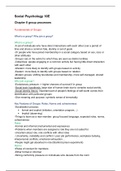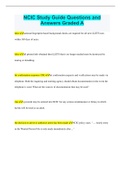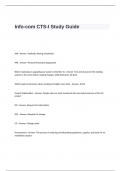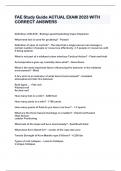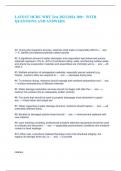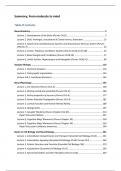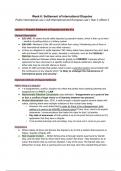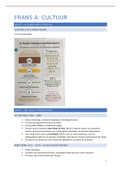The legality of Nuremberg: the ex post facto debate explored from a natural versus
positive law perspective
Accountability For Atrocity Crimes
Final Assignment
29-05-2024
Word Count: 2999
, The legality of Nuremberg: the ex post facto debate explored from
a natural versus positive law perspective
Introduction
Almost eighty years ago, one of the most deadly wars known to this planet, World War II,
ended. To do justice to all the suffering, the Allied forces set up a military tribunal, which
quickly became known as the Nuremberg Trials. During the trials, twenty-one Nazi
individuals were prosecuted, twelve of whom received death sentences (Bazyler, 2016). The
entire process has been documented in over 17,000 pages, creating one of the largest
historical war archives (Dodd, 1947). The Nuremberg trials have been hailed by many as a
landmark in international law and as an example for future trials (Dodd, 1947; Lemnitzer,
2015; Stimson, 1947; Wright, 1947).
The trials, however, have not been without critique. Perhaps one of the most
well-known shortcomings of the Nuremberg trials is the perceived ‘victor’s justice’ (see
Bazyler, 2016; Kelsen, 1947; Lemnitzer, 2015), a critique that will not be discussed in this
paper as it is beyond its scope. A consensus seems absent, however, regarding the debate on
the application of ex post facto laws and the violation of nullum crimen sine lege, nulla poena
sine lege1. This paper, therefore, asks how the application of ex post facto laws during the
Nuremberg trials is defended or critiqued in academic literature during and after the trials.
Such historical analysis enhances the scholarly field as it increases understanding of
perspectives taken in post-war literature and aims to identify common themes in the
justifications or criticisms. The essay argues that the arguments used can be categorised into
three broad themes. Furthermore, it found that critics predominantly use arguments grounded
in positive law, while defenders primarily argue based on natural law.
The first section of this paper is dedicated to its methodology. Next, the legal theories
of natural law and positive law are discussed, after which the maxims of ex post facto and
nullum crime sine lege are contextualised. The author, lastly, discusses the main justifications
and critiques found in the literature, dividing them into different categories as they proceed.
The paper ends with some concluding remarks.
Methodology
1
Hereinafter referred to as nullum crimen sine lege
1

